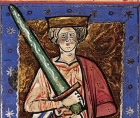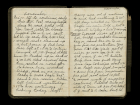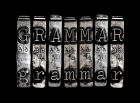Historical Argument
One of the most widely shared misconceptions among young people is that there can be one ‘true’ story of the past and that the value of any given interpretation depends on how closely it approximates to this ideal account. Enabling students to recognise that what historians are actually doing when they write about the past is advancing a series of claims – presenting and defending an argument – will help them not only in handling different interpretations but also in improving their own writing. Read more
Sort by:
Date (Newest first) | Title A-Z
Show:
All |
Articles |
Podcasts |
Multipage Articles
-

'I feel if I say this in my essay it’s not going to be as strong’
ArticleClick to view -

Academic Critical Thinking, Research Literacy and Undergraduate History
ArticleClick to view -

Active Historical Thinking
ArticleClick to view -

An Investigation into Finding Effective Ways of Presenting a Written Source to Students
ArticleClick to view -

Asses, archers and assumptions: strategies for improving thinking skills in history in Years 9 to 13
ArticleClick to view -

Assessment after levels
ArticleClick to view -

Being an historian
ArticleClick to view -

Beyond 'I speak, you listen boy!' Exploring diversity of attitudes and experiences through speaking and listening
ArticleClick to view -

Challenging not balancing: developing Year 7's grasp of historical argument through online discussion and a virtual book
ArticleClick to view -

Chatting about the sixties: historical reasoning in essay-writing
ArticleClick to view -

Continuity in the treatment of mental health through time
ArticleClick to view -

Couching counterfactuals in knowledge when explaining the Salem witch trials with Year 13
ArticleClick to view -

Cunning Plan 165: Helping lower-attaining students
ArticleClick to view -

Dealing with the consequences
ArticleClick to view -

Democracy is not boring
ArticleClick to view -

Designing learning activities to stimulate domain-specific thinking
ArticleClick to view -

Developing independent learning with Year 7
ArticleClick to view -

Developing students' thinking about change and continuity
ArticleClick to view -

Does the grammatical ‘release the conceptual’?
ArticleClick to view -

Does the linguistic release the conceptual? Helping Year 10 to improve their casual reasoning
ArticleClick to view

